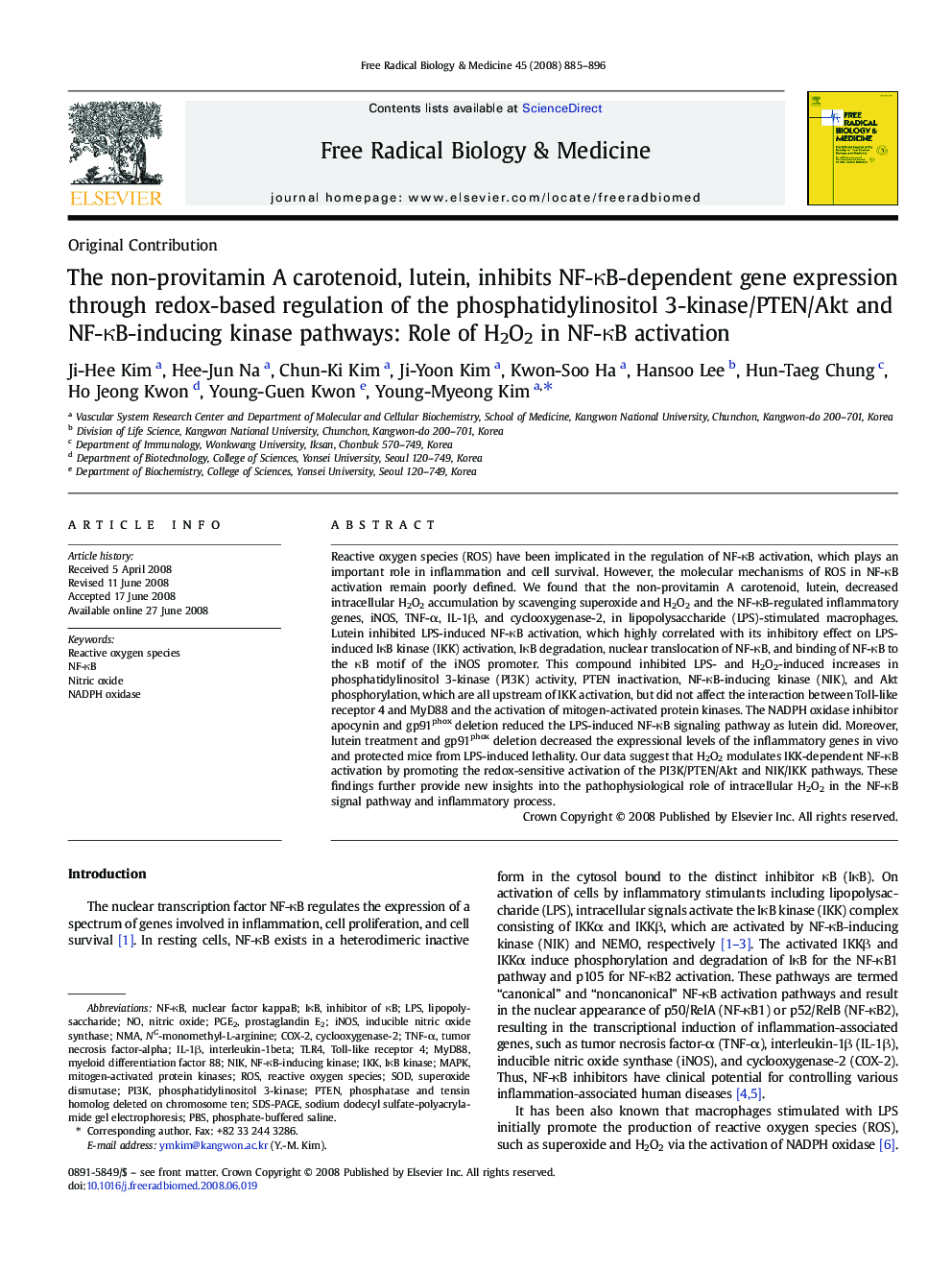| Article ID | Journal | Published Year | Pages | File Type |
|---|---|---|---|---|
| 1910686 | Free Radical Biology and Medicine | 2008 | 12 Pages |
Reactive oxygen species (ROS) have been implicated in the regulation of NF-κB activation, which plays an important role in inflammation and cell survival. However, the molecular mechanisms of ROS in NF-κB activation remain poorly defined. We found that the non-provitamin A carotenoid, lutein, decreased intracellular H2O2 accumulation by scavenging superoxide and H2O2 and the NF-κB-regulated inflammatory genes, iNOS, TNF-α, IL-1β, and cyclooxygenase-2, in lipopolysaccharide (LPS)-stimulated macrophages. Lutein inhibited LPS-induced NF-κB activation, which highly correlated with its inhibitory effect on LPS-induced IκB kinase (IKK) activation, IκB degradation, nuclear translocation of NF-κB, and binding of NF-κB to the κB motif of the iNOS promoter. This compound inhibited LPS- and H2O2-induced increases in phosphatidylinositol 3-kinase (PI3K) activity, PTEN inactivation, NF-κB-inducing kinase (NIK), and Akt phosphorylation, which are all upstream of IKK activation, but did not affect the interaction between Toll-like receptor 4 and MyD88 and the activation of mitogen-activated protein kinases. The NADPH oxidase inhibitor apocynin and gp91phox deletion reduced the LPS-induced NF-κB signaling pathway as lutein did. Moreover, lutein treatment and gp91phox deletion decreased the expressional levels of the inflammatory genes in vivo and protected mice from LPS-induced lethality. Our data suggest that H2O2 modulates IKK-dependent NF-κB activation by promoting the redox-sensitive activation of the PI3K/PTEN/Akt and NIK/IKK pathways. These findings further provide new insights into the pathophysiological role of intracellular H2O2 in the NF-κB signal pathway and inflammatory process.
